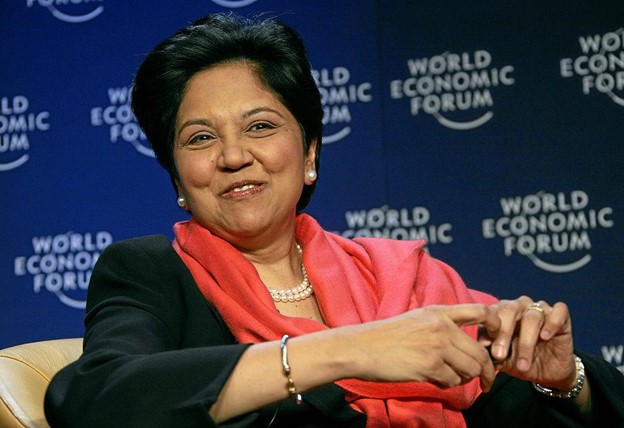According to a report by Catalyst, in 2021, the proportion of women in senior management roles globally grew to 31%, the highest number ever recorded. 90% of companies worldwide have at least one woman in a senior management role as of 2021. In the same year, the Fortune Global 500 reported an all-time high of 23 women CEOs, including six women of colour.
In India, according to a report by StartupTalky, only 29 Indian companies had women at senior management and executive levels in March 2020. The number has grown by a measly 6% in the past decade. Today, women own around 20% of micro-scale businesses in urban and rural parts of the country.
Women account for 19% of India’s total labour force. Around 3.8% are CEOs and Managing Directors of listed companies in India. This number has seen a slight uphill from 3.2% in 2014. Whereas only 8% of women are found to be in top management positions, 13.8% of women are board of directors in companies listed on the NSE.
These statistics show that while progress is being made, there is still much work to be done to achieve gender parity in top corporate positions worldwide and in India.
MBA for women can bridge this gender parity in the top positions in the business world.
Key Challenges of Women in the Corporate World

Some of the key challenges women in the corporate world face include:
- Limited Funding: Women often face disparities in gaining access to capital for starting or expanding businesses.
- Balancing Responsibilities: Women frequently encounter the challenge of juggling multiple roles at home and at work.
- Fear of Failure: Societal pressures and stereotypes can amplify the fear of failure in women, hindering their risk-taking ability.
- Inadequate Support System: Women might lack a robust support system, both personally and professionally, to back their ambitions.
- Gender Inequality: In the corporate world, women often face gender bias, resulting in lower pay and lesser opportunities.
- Limited Knowledge: Women might lack specific industry knowledge or access to resources to develop it, posing a barrier to their progress.
- Unfavourable Business Environment: Workplace cultures that do not promote diversity can pose challenges for women’s growth.
- Timidity: Social conditioning can lead some women to be less assertive, impacting their negotiation and leadership skills.
- Competition Against Males: The predominance of males in leadership roles often makes the competition stiffer for women in the corporate world.
- Lack of Education: In certain regions, the underrepresentation of women in higher education can limit their advancement in the corporate world.
- Lack of Work-Life Balance: Women often face the challenge of maintaining a healthy work-life balance, especially with familial responsibilities.
- Familial Issues: Traditional gender roles often burden women with major familial responsibilities that can interfere with their careers.
- Childcare: Women often carry a greater share of childcare responsibilities, which can affect their ability to fully dedicate themselves to their jobs.
- Workplace Harassment: Women are more likely to experience sexual harassment at work, creating an unsafe and unproductive environment.
But Many Women in Top Corporate Positions Have Defied All Odds to Succeed!

Here are some short anecdotes of women who climbed up the corporate ladder despite all these challenges:
- Whitney Wolfe Herd, the founder of Bumble, started her company with limited funds. Despite this, she created a unique dating app where women make the first move, successfully turning it into a billion-dollar business.
- Mary Barra, the CEO of General Motors, successfully balances her corporate responsibilities with her family life. She credits a supportive spouse and structured routine as the keys to her success.
- Oprah Winfrey, a media mogul, has faced numerous failures in her career. Instead of succumbing to fear, she uses these experiences as stepping stones for success.
- Arianna Huffington, the co-founder of the Huffington Post, often felt unsupported during the early years of her career. Despite this, she built a successful media company and emphasizes the importance of creating your own support system.
- Sheryl Sandberg, COO of Facebook, has been open about her experiences with gender inequality. Through her initiative “Lean In”, she encourages women to aspire to leadership roles.
- Ursula Burns, former CEO of Xerox, started her career as an intern without extensive knowledge of the corporate world. Through continuous learning, she rose to become the first African-American woman to run a Fortune 500 company.
- Marillyn Hewson, the former CEO of Lockheed Martin, navigated a male-dominated defence industry to head one of the world’s largest defence contractors.
- Indra Nooyi, the former CEO of PepsiCo, pushed past her introverted nature to become an assertive leader. She believes that stepping outside of her comfort zones is key to career growth.
- Ginni Rometty, the former CEO of IBM, didn’t let male competition hinder her. She confidently showcased her skills and vision to lead the tech giant.
- Zhang Xin, CEO of SOHO China, came from an underprivileged background with limited education. She worked multiple jobs to finance her education at Cambridge and later founded one of China’s largest real estate developers.
- Susan Wojcicki, the CEO of YouTube, manages her work-life balance by ensuring she has dinner with her family every night and avoids scheduling meetings after 6 PM.
- Helena Morrissey, founder of the 30% Club and former CEO of Newton Investment Management, balances her career with raising nine children, demonstrating that familial issues don’t have to hinder corporate success.
- Ruth Porat, CFO of Alphabet Inc., advocates for quality, affordable childcare as an essential support for working mothers.
- Ellen Pao, the former CEO of Reddit, tackled workplace harassment head-on by filing a high-profile gender discrimination lawsuit against her former employer, sparking a crucial conversation in Silicon Valley about workplace equality.
How can MBA help women reach top corporate positions?

MBA for women can be a breakthrough. Here are some of the ways this business degree program can make a difference in their lives:
- Thriving Beyond Comfort Zones: SMS Varanasi MBA alumna Shalini Batra attributes her capacity to handle conflict productively to the leadership skills acquired during her MBA. The curriculum’s emphasis on tackling intercultural negotiations primes students for the global corporate world.
- Power of Networking: SMS Varanasi comes up with many initiatives to empower women by providing coaching, networking events, and mentorship. They highlight the importance of female presence in networking processes and cite the influential references and valuable connections they offer.
- Assertiveness and Confidence: Speaking up confidently, even in male-dominated industries, is vital. Shalini advises women to voice their perspectives assertively. Participating in case studies during her MBA enhanced her confidence, leadership, and teamwork skills.
- Embracing Your Value: Understanding one’s worth and unique contributions to a work environment is crucial. Our experience in the venture capital industry demonstrates the importance of diversity in fostering creativity and addressing a diverse customer base.
- Opt for Women-supportive MBAs: Choosing an MBA program that promotes gender equality is important. SMS Varanasi MBA program is an example of such commitment. We have impressive gender parity and diversity, creating an inclusive environment that fosters women’s growth in business.
Is Choosing MBA a Good Decision for Women?

Deciding to embark on an MBA journey can significantly benefit women, particularly when considering career advancement and financial gain. Data from the Forté Foundation, a consortium championing the cause of MBA for women, indicates a slight increase in female enrolment in their partner business schools, climbing to 41.4% in 2022 from 41.2% in 2021.
In the pursuit of career success, an MBA often proves to be a worthy investment. Statistics suggest a robust link between an MBA and financial growth, with women experiencing a salary surge of 55-65% within the first five years post-graduation. Furthermore, a striking 85% of MBA graduates acknowledge the pivotal role of the degree in fast-tracking their career trajectory.
Corporate performance also sees a notable boost in women in leadership roles. Firms with women serving as board directors typically record a remarkable 53% higher return on equity. However, it’s crucial to weigh the substantial time, monetary commitment, and effort demanded by an MBA program. Ultimately, opting for an MBA hinges on individual circumstances and professional objectives. Women in the corporate world should go for this postgraduate course to gain the skills and knowledge they need to get to the top positions in their industry.


